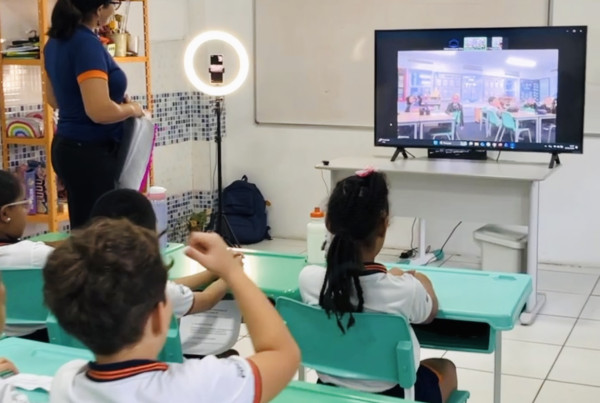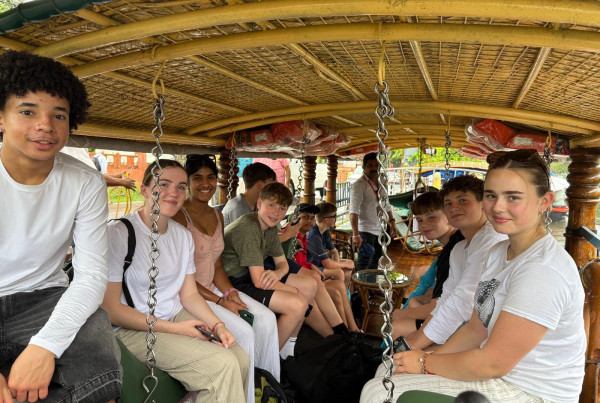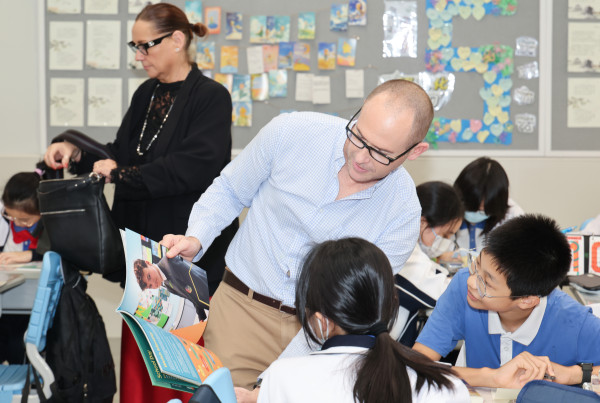The following article comes from Kevin O’Neill, Vice Principal in Northern Ireland.
My global experiences as a school leader have enabled my students and colleagues to expand their worldviews and develop cross-cultural awareness and international-mindedness by enhancing their understanding of different cultures, perspectives, and views. I passionately believe in creating learning opportunities that allow for interacting with peers and teachers with different backgrounds and upbringings, students will begin to value each one’s unique story and develop a more holistic approach to life’s experiences, both at school and in the future. Understanding and appreciating the diversity of cultures and perspectives worldwide helps students become compassionate, open-minded, global citizens who can lead change in the world.
Developing and maintaining a network of friendships or professional relationships with people from all over the world is undoubtedly a lifeenriching experience that will stay with students forever. ERASMUS+, Connecting Classrooms, eTwinning, Dissolving Boundaries and The Global Learning Program have all over the last decade helped children I work and teach with develop a growth mindset and have empowered them to become global citizens that will go on to make a difference in society. The pupil voice was platformed and amplified through these initiatives.
As the world is becoming one big “global village”, I feel that the importance of teaching global values to students and having a global perspective in education has never been greater. Young learners and students must develop global competencies which include the attitudes, knowledge, and skills to work in today’s interdependent world and strive for a sustainable, peaceful, and inclusive world.
”Young learners and students must develop global competencies which include the attitudes, knowledge, and skills to work in today’s interdependent world and strive for a sustainable, peaceful, and inclusive world.
Kevin O'NeillVice Principal at Mount St. Catherine’s PS, Armagh
Teaching global perspectives has a variety of immediate benefits for students, including: (i) improved student engagement; (ii) cross-cultural skills which increasing student worth and employability prospects in a global jobs market (iii) higher emotional intelligence and communication skills.
More and more young people are living like global citizens today, traveling around the globe, leaving their countries to study abroad, undertaking internships in international companies, relocating to other countries, making lasting friendships with people from different countries, etc. Their lives transcend the borders of their own countries and overlap with different cultures, countries, and environments. In part, the increasing number of young people who live like global citizens is a natural process – our world is becoming increasingly and rapidly globalized and now is very different from the world people used to live in twenty or thirty years ago.
One can safely assume that being a global citizen entails a myriad of professional and other opportunities, ranging from being able to find a good job, making meaningful connections with other people, and simply thriving in the constantly changing and overlapping worlds and cultures. Therefore, educating young learners to be global citizens should become a priority in all of our schools.

Author
Kevin O’Neill, Vice Principal in Northern Ireland.
Funding to support life-changing experiences
As part of the ‘School Trips Changes Lives‘ campaign, we are releasing a funding pot of £60,000 for a maximum of 20 schools. That means 20 schools will be reimbursed for completing the Global School Transformation programme.
Schools in the UK can also benefit from our full support in applying for Turing Scheme funding and delivering an immersive international student trip to visit a partner school.
Get in touch to find out more and reserve your funding.




